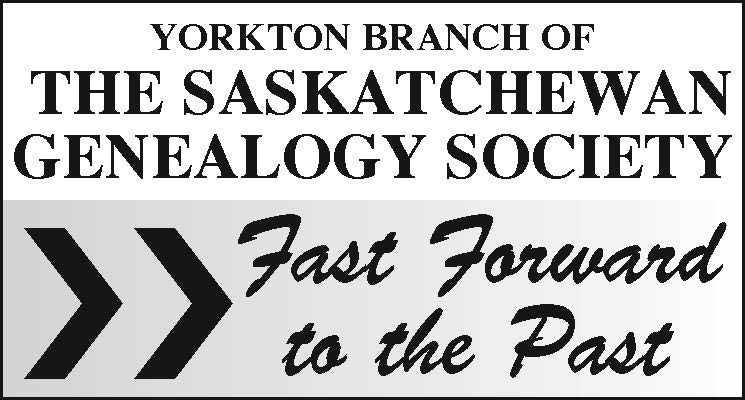On February 17, 2019, the Yorkton Genealogical Society raffle ticket draw was made at the Western Development Museum. The draw was made at the end of the “Ties That Bind” Museum Program. The 3 winners are the following:
•Steve Farquharson of Saltcoats won the Ancestry DNA Kit
•Lil Koroluk of Kamsack won the Ancestry 1 year membership (Canadian Version)
•Francis MacIsaac of Kamsack won the 1 year subscription to the Family Tree VIP Program Magazine (Deluxe Version)
Proceeds from the raffle ticket sales will be used to help support the mini-conference that the Yorkton Genealogical Society will be sponsoring toward the end of September, 2019. Thank you to everyone who supported this project.
The next genealogy meeting will be held on March 12, 2019, at 7 p.m., in the History Room of the Yorkton Public Library. The agenda will include a discussion of the upcoming mini-conference, speakers, tips for solving family history search problems, etc.
In the January 30, 2019, edition of the “Four Town Journal” Newspaper in Langenburg, Saskatchewan, a timely notice appeared which advocates against the removal of public notices from newspapers. But what does public notices in newspapers have to do with genealogy (i.e., family history)?
Public notices in newspapers are an important source of local history. That is, it is an account of the lives of ordinary people which is written as events happen.
Without public notices appearing in newspapers, the public will have to search for information from various sources prior to it being removed from public display. How will the public know when, where, how, and why to search for information which usually appears in public notices such as: probate court and legal notices, announcements, land titles, proclamations, real estate transactions, business advertisements, new and terminated partnerships, etc.,
If items like public notices stop appearing in local papers, it maybe just a matter of time before personal items like obituaries, birth notices, death notices, etc., stop appearing as well. The lack of these notices could make genealogical research much more time consuming in the future.
Under the best circumstances searching for information about an ancestors who may have died many years ago, can be difficult. However, if public notices remain in the newspaper, it could continue to be beneficial for the researcher.
In spite of the popularity of social media, to have something in print in a newspaper makes it a permanent source which can’t so easily be removed or altered. Plus, once published and circulated among a newspaper readership, libraries, etc. the information can withstand such calamities as fire and water damage to the local source that published it.
Searching and discovering some events in the newspapers, such as: the date, place, death, etc. of the events of a long, lost ancestor may open doors to additional research sources and documentation. Public notices in newspapers are a place which is accessible and well known to many adults in society. As a result, it continues to be a source of knowledge to the public.
Submitted by Doris Maben



